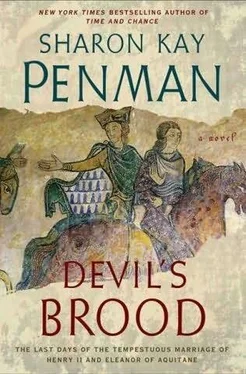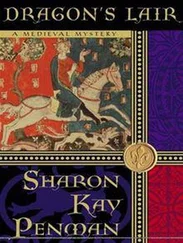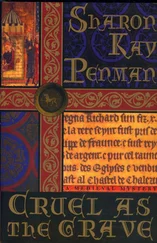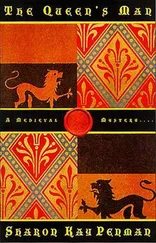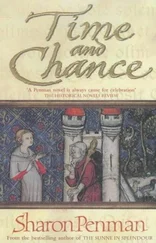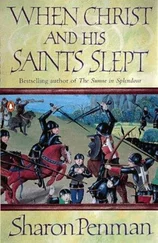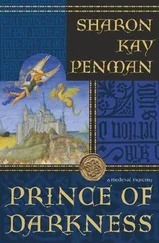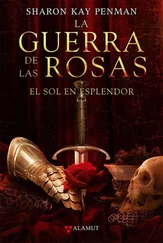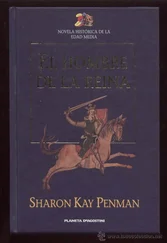Sharon Penman - Devil's brood
Здесь есть возможность читать онлайн «Sharon Penman - Devil's brood» весь текст электронной книги совершенно бесплатно (целиком полную версию без сокращений). В некоторых случаях можно слушать аудио, скачать через торрент в формате fb2 и присутствует краткое содержание. Жанр: Исторические приключения, на английском языке. Описание произведения, (предисловие) а так же отзывы посетителей доступны на портале библиотеки ЛибКат.
- Название:Devil's brood
- Автор:
- Жанр:
- Год:неизвестен
- ISBN:нет данных
- Рейтинг книги:4 / 5. Голосов: 1
-
Избранное:Добавить в избранное
- Отзывы:
-
Ваша оценка:
- 80
- 1
- 2
- 3
- 4
- 5
Devil's brood: краткое содержание, описание и аннотация
Предлагаем к чтению аннотацию, описание, краткое содержание или предисловие (зависит от того, что написал сам автор книги «Devil's brood»). Если вы не нашли необходимую информацию о книге — напишите в комментариях, мы постараемся отыскать её.
Devil's brood — читать онлайн бесплатно полную книгу (весь текст) целиком
Ниже представлен текст книги, разбитый по страницам. Система сохранения места последней прочитанной страницы, позволяет с удобством читать онлайн бесплатно книгу «Devil's brood», без необходимости каждый раз заново искать на чём Вы остановились. Поставьте закладку, и сможете в любой момент перейти на страницу, на которой закончили чтение.
Интервал:
Закладка:
The silence that followed was stifling. Girding himself to bear the king’s wrath, Will raised his head and met Henry’s gaze. The king’s eyes were the color of smoke, his mouth tightly drawn, as if to stop angry words from escaping. “Keep him from harm, Will,” he said at last. “Do not let me down.”
Will swallowed, knelt hastily, and then retreated just as hastily, vastly relieved by his reprieve but not fully understanding it. Rainald did not understand, either. “The impudence of the man! Why were you so forbearing with him? Had he dared talk to me like that, I’d have dismissed him straightaway.”
“If I did that,” Henry said, “Hal would lose the one trustworthy and honorable man in his service, the one man who’d be loyal to his last breath. How would that benefit my son, Rainald? Do you not know how rare such men are? Men who put loyalty above ambition and greed and royal favor?” And even Rainald realized that Henry was speaking not only of William Marshal, but of Thomas Becket, the false friend who’d betrayed him for reasons he could never comprehend.
People had begun to gather at dawn before the Cathedral church of St Andrew the Apostle, not wanting to miss the spectacle of a king brought low, forced to do penance like all mortal men. They were to be disappointed. Henry arrived with the papal legates and barons and bishops beyond counting. They’d all gone into the cathedral, where Henry swore upon the Holy Gospels that he’d neither commanded nor desired that the Archbishop of Canterbury be slain, and that when he was told of the crime, he was horrified and truly grieved for the death of Thomas of blessed memory. He admitted, though, that the killing was the result of his heedless, angry words, and he pledged to honor the commitments made to Holy Church on this, the last Sunday before Ascension in God’s Year 1172, the eighteenth year of his reign. His son the young king then took an oath to honor all those commitments that did not relate only to Henry. But all of this was done out of sight and sound of the waiting crowds.
When Henry finally emerged from the church, the spectators were disappointed anew, for he was not bareheaded and barefoot and clad only in his shirt. A few men explained knowingly that he was spared the usual mortification because he’d not been excommunicated, but most of the bystanders took a more cynical view, that kings were always accorded special treatment, even by the Almighty. Henry knelt upon the paving stones, only then removing his cap, and received public absolution by the Cardinals Albert and Theodwin. When he rose, the cardinals and the Bishop of Avranches led him back into the cathedral, a symbolic act of reconciliation with the Church and the Almighty.
The dissatisfied onlookers dispersed when they realized the show was over. Roger, Bishop of Worcester, stood alone for a moment before slowly reentering the church, for he had been close enough to Henry to hear him say softly after the absolution: “Check, Thomas, and mate.”
CHAPTER THREE
June 1172
Poitiers, Poitou
From an open window of the queen’s solar in the Mauber-geonne Tower, Maud, Countess of Chester, looked down upon a garden vibrant with summer flowers and echoing with youthful high spirits. Eleanor’s son Geoffrey was playing quoits with two friends, a game that was by its very nature boisterous and somewhat hazardous. When the players were youngsters of thirteen and fourteen, it was guaranteed that the horseshoes would be flung about with abandon, missing the targeted hob more often than not, scarring the grassy mead and scaring songbirds from budding fruit trees and overhanging willows. The shouts of the boys and the barking of their dogs had drawn an audience of giggling girls, all of them highborn and destined for the marriage beds of princes.
The oldest of the girls was Maud’s daughter-in-law, Bertrada, who’d wed her son Hugh three years ago, becoming at thirteen countess of one of England’s richest earldoms, the Honour of Chester. The prettiest was Geoffrey’s sister Joanna, only in her seventh year but already showing signs that she’d inherited her mother’s fabled beauty. Eleven-year-old Constance, dark-haired and whip-thin, was a great heiress in her own right; betrothed to Geoffrey in early childhood, she would bring to him the Duchy of Brittany. And Alys, also eleven, was a daughter of the French king, plight-trothed to Geoffrey’s older brother Richard, one day to rule with him over the vast, lush domains of Eleanor’s Aquitaine.
Eleanor and Aquitaine. Maud always thought of her friend in those terms, for it was Aquitaine that had defined Eleanor, that had conferred upon her the queenships of France and then England. Few brides had ever brought such a dowry as Aquitaine to their husbands. Eleanor’s duchy comprised the counties of Poitou, Berry, Saintonge, Angouleme, Perigord, the Limousin, La Marche, the Auvergne, the Agenais, and Gascony. Stretching from the Atlantic Ocean to the Massif Central and the Rhone Valley, from the Pyrenees to the River Loire, it encompassed much of southwestern France, dwarfing the lands controlled by the French king, and it had been blessed by nature and God with a mild climate, fertile soil, deep river valleys, ancient oak forests, and some of the best vineyards in Christendom. By taking Eleanor as his queen, Louis had gained greatly in stature and the French coffers had overflowed with the riches of Aquitaine. Maud thought that her cousin Harry might not even have won his crown had he not wed Eleanor as soon as she was free. Aquitaine had been his stepping-stone to the English throne.
Maud’s friendship with Eleanor had endured for almost twenty years, but she’d never spent that much time in the other woman’s domains, for neither had Eleanor. For much of her married life, she’d been traveling with Henry or acting on his behalf in Normandy and England or occupied with her many pregnancies. It was only four years ago that she’d taken up residence again in Aquitaine, holding her own court at Poitiers and gathering the reins of government into her own hands.
Turning away from the window, Maud wandered restlessly about the chamber. Eleanor had excused herself to confer with Saldebreuil de Sanzay, her constable in Poitou, and Maud was growing bored with her own company. Several charters were spread across a trestle table and she scanned the top one briefly. It was a routine act of patronage, remitting taxes for a citizen of La Rochelle in exchange for his agreement to pay rent to the abbey of Fontevrault. What caught Maud’s attention was the change in the form of address. Instead of the usual Fidelibus Regis et suis, it read: Fidelibus suis.
Maud gazed down thoughtfully at the parchment. Eleanor’s charters had always begun “To the king’s faithful followers and hers.” This one was addressed simply to “her faithful followers.” Did it matter? A careless mistake by her scribe? Or another feather in the wind, a subtle but significant indication that Eleanor was asserting her independence and her authority? Her right to govern in her own name?
A sudden spate of cursing drew her back to the window. Geoffrey’s friends had begun to quarrel over a throw and before long, they were rolling around in the grass as Geoffrey and the girls cheered them on. Maud watched serenely; with two sons of her own, she knew how little such youthful squabbles meant.
She didn’t hear the opening door, did not realize she was no longer alone until Eleanor joined her at the window. Eleanor, the mother of four sons, paid even less heed than Maud to the garden brawl. “Petronilla’s daughter has just ridden in,” she said, hazel eyes luminous with pleasure. “I was hoping she’d arrive in time to witness Richard’s investiture.”
Maud jogged her memory. Isabelle was the elder of Petronilla’s two daughters, wed as a child to the Count of Flanders; Alienor, who’d wed Isabelle’s brother-in-law, the Count of Boulogne, a few years ago, was already here. As far as Maud knew, Eleanor had not spent much time with her sister’s children. That she had taken the trouble to make sure both girls were present in Poitiers showed Maud how much her friend missed Petronilla, whose death that past year had robbed Eleanor of her last living link to a sun-drenched, blissful childhood, to a time when she’d been indulged and pampered and cherished as her father’s favorite in this exotic land she so loved.
Читать дальшеИнтервал:
Закладка:
Похожие книги на «Devil's brood»
Представляем Вашему вниманию похожие книги на «Devil's brood» списком для выбора. Мы отобрали схожую по названию и смыслу литературу в надежде предоставить читателям больше вариантов отыскать новые, интересные, ещё непрочитанные произведения.
Обсуждение, отзывы о книге «Devil's brood» и просто собственные мнения читателей. Оставьте ваши комментарии, напишите, что Вы думаете о произведении, его смысле или главных героях. Укажите что конкретно понравилось, а что нет, и почему Вы так считаете.
